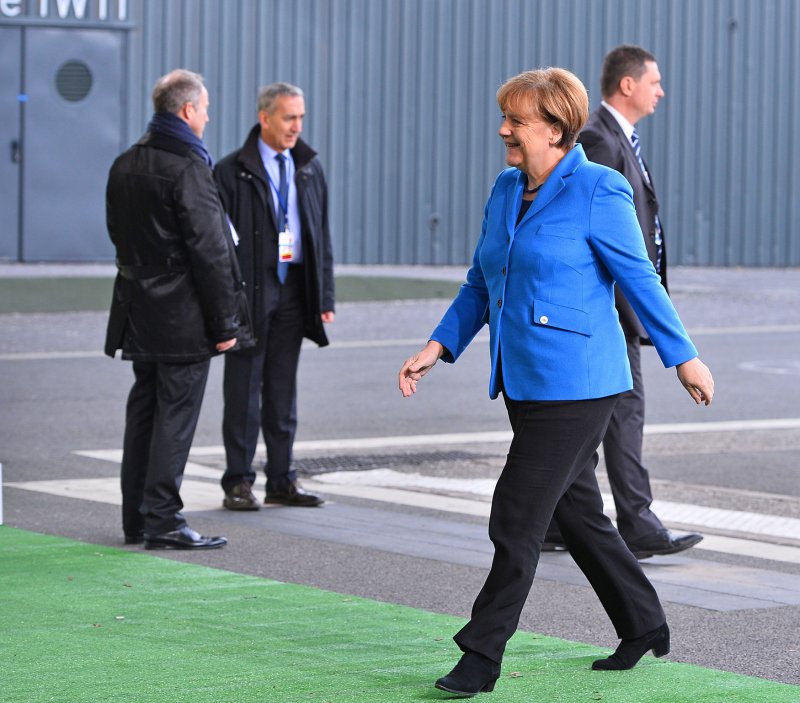German Chancellor Angela Merkel said Wednesday refugees in Germany are not the cause opf terrorism, in a campaign speech in Mecklenburg-Western Pomerania, one of two states holding elections in September. Photo by David Silpa/UPI |
License Photo
NEUSTRELITZ , Germany, Aug. 18 (UPI) -- German Chancellor Angela Merkel reinforced her belief that refugees to Germany were not a terrorism threat during a campaign speech Wednesday.
She told an audience in Neustrelitz, in her home state, that Islamist militants are attempting to recruit refugees in Germany.
"The phenomenon of the Islamist terrorism of ISIS is not a phenomenon that has come to us through refugees, but rather one which we've already had here before," Merkel said, using an alternate acronym for the Islamic State.
She held to her stand that the government should deal with internal terrorism with expanded state powers and an increase in the number of police.
"More personnel plus more power to intervene," she said.
The states of Mecklenburg-Western Pomerania and Berlin will hold state elections in September, and will be a test of whether Merkel's policies on immigration have alienated core voters. Under Merkel's leadership, more than 1 million refugees have entered the country. Incidents of violence in Germany during the summer, blamed on radicalized refugees, have lowered her high opinion ratings and encouraged support for the far-right, anti-immigrant Alternative for Germany Party.
Merkel's Christian Democratic Union Party could lose its dominance in the two states' upcoming elections, and Germany's splintered left wing -- comprised of the CDU and Social Democrats, who rule together in Berlin in a coalition, as well as the Green Party and the radical Left Party -- could seek to form joint governments in both states.
The AfD Party "is eating away at the bigger party. This is a problematic trend and Ms. Merkel has a hand in it," Tilman Mayer, University of Bonn political science professor, told The Wall Street Journal.
A poll in Mecklenburg-Western Pomerania, published Friday, showed the CDU leading the AfD by 23 percent to 19 percent. In Berlin, another poll showed the AfD gained 14 percent of support, compared to the CDU's 18 percent, the Green Party at 19 percent and the Social Democrats at 23 percent. Merkel's national approval rating fell from 59 percent to 47 percent in August, with nearly two-thirds of respondents expressing disapproval of her refugee policy, The Wall Street Journal noted.















